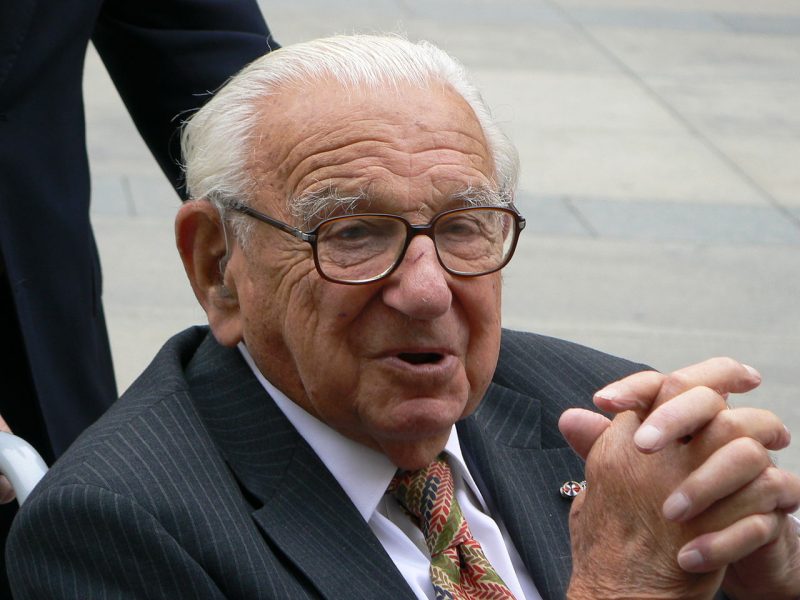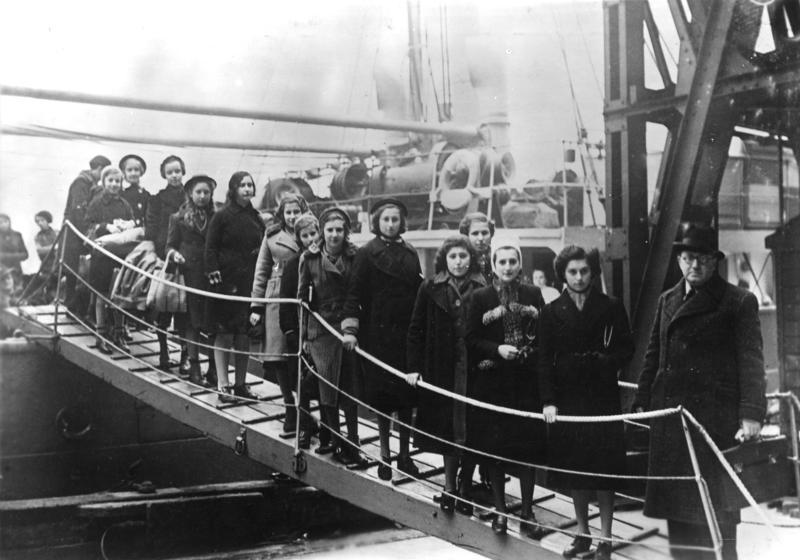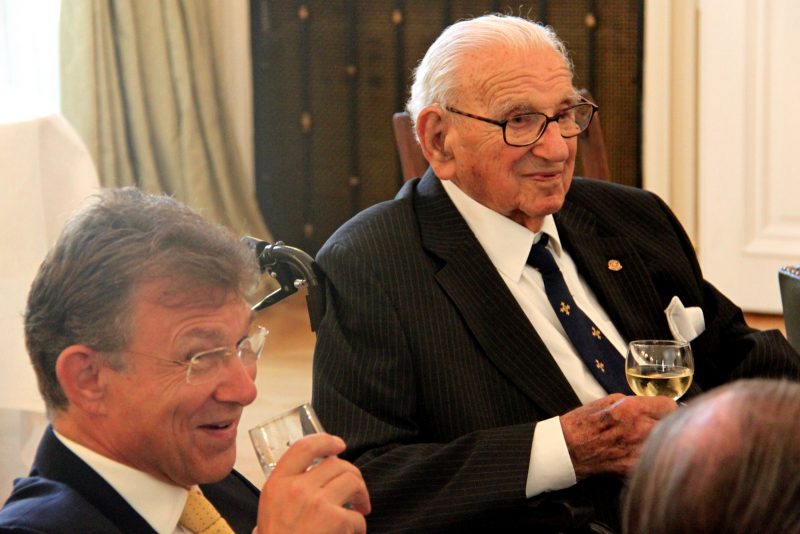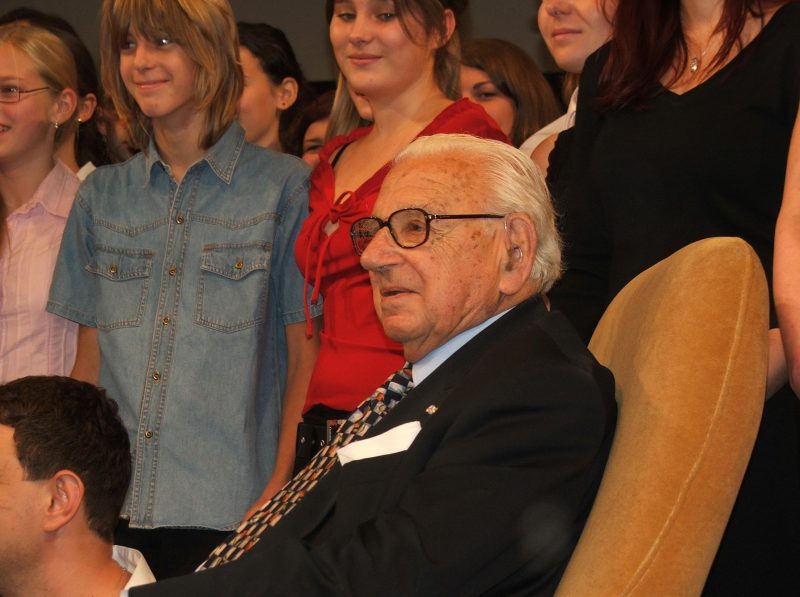
Nicholas Winton is 105 years old and has a long and exciting life behind him, but a special moment turned him into a hero. Before World War II, he saved more than 600 Jewish children from death in the Holocaust Since then everyone praised and admired him for his achievement. The old man modestly denies almost all the credit, this is his story.
“I never got to do anything.” he says, while in 1939 he saved 669 Czechoslovakian Jewish children. Although Winton’s memory is no longer in a good shape – because of his advanced age, he still recounts his life; a long life in which he lived through all the big events of the twentieth century.
Nicholas Winton was born in London in 1909 in a German-Jewish family, with highly educated parents. He attended a public school in the 1920s and then became a broker at the London Stock Exchange. In those years he also approached the socialist movement and the Labor Party. In 1938, instead of going in Switzerland where he planned a ski trip, Winton and his close friend, the socialist Martin Blake, went to Prague. Blake wanted to do something to help the refugees who had come to Prague after Germany had annexed the Sudetenland.
Through relentless insistence upon the Home Office, he managed to convince them to bring hundreds of children from Czechoslovakia to UK. The operation lasted nine months during which eight trains full of children left Central Europe heading to England, through the Netherlands. The ninth train should have left on September 1st 1939, but never did because of the German invasion in Poland, which closed Czechoslovakia’s borders. The 250 children who could have been saved ended up in the concentration camps.

Winton’s story remained untold for five decades until his wife, Grete, removed from storage an old notebook filled with photos and names of the rescued children and handed it to Elisabeth Maxwell, a Holocaust researcher and the wife of a journalist. Robert Maxwell published an article in the Sunday People. This led to an episode for the show That’s Life in February 1988: when Winton was out in the public, the TV host Esther Rantzer presented his story and then revealed that all persons sitting next to him in the public were part of the children rescued by Winton.
From that moment, Nicholas Winton became famous and his story was known by the entire world. He was awarded by The British Royal Family, a statue was built for him and he received the highest decoration in Czechoslovakia, The Order of The White Lion. Moreover, two Czech astronomers discovered a small planet in 1998 and named it after him.
“I never was a hero because I was never in danger.”
Old Winton is very modest when people praise him. “It gets a little bit boring to talk about the same thing for a hundred of years.” He insists talking about the roles played by Doreen Warriner and Trevor Chadwick in the rescue missions, those who, he says, deserve all the admiration.
Called “The British Schindler”, the old man refuses to be compared with the German that inspired the movie Schindler’s List. He claims that Warriner and Chadwick, who remained in Prague the entire period until the outbreak of the war, deserve the homage.

Winton says that his fame came only because of his longevity. “The other ones are no longer with us.” But he can’t deny all his merits: he could, like many other Europeans, look away and ignore what was happening in those parts of Europe. But he chose to act. “It was a remarkable thing.”, he admits, “but it didn’t seem like this when we were doing it. Some people are born great, others achieve greatness and some achieve greatness by chance.” Winton believes he is in the third category.
“I knew what was happening in Germany.”
Why did he do it? Partly, he says, because of the family ties. “My family knew what was happening in Germany. I sheltered people that were persecuted, families that lived with us, refugees. We always knew what was going on, even more than politicians.” Another reason was his socialist belief. He was part of a left circle that was opposing the conciliation policy pursued by the British Government and until 1938 he already understood the risky situation for the Jews in Czechoslovakia. There were efforts of moving people out of the country but nobody helped the children. Winton filled this gap.

After the war Winton never talked about what he had done. When it was necessary, he did, but he generally tried to avoid it because he didn’t want to give the impression that the evacuation of these children was the key moment of his life – exactly what the media from 1988 suggests since the old man got famous. From certain points of view, he believes that what he did after the war, the time he worked for the International Organization of Refugees, then for the International Bank for Reconstruction and Development, had a deeper impact.
Today Winton has a pessimistic view when it comes to the future, being worried about nuclear bombs and by the human capacity for destruction. He also doubts that the omnipresence of the news on TV will be able to prevent the passivity of democracies and the mass delusion specific in the 30s, which eventually led to war.